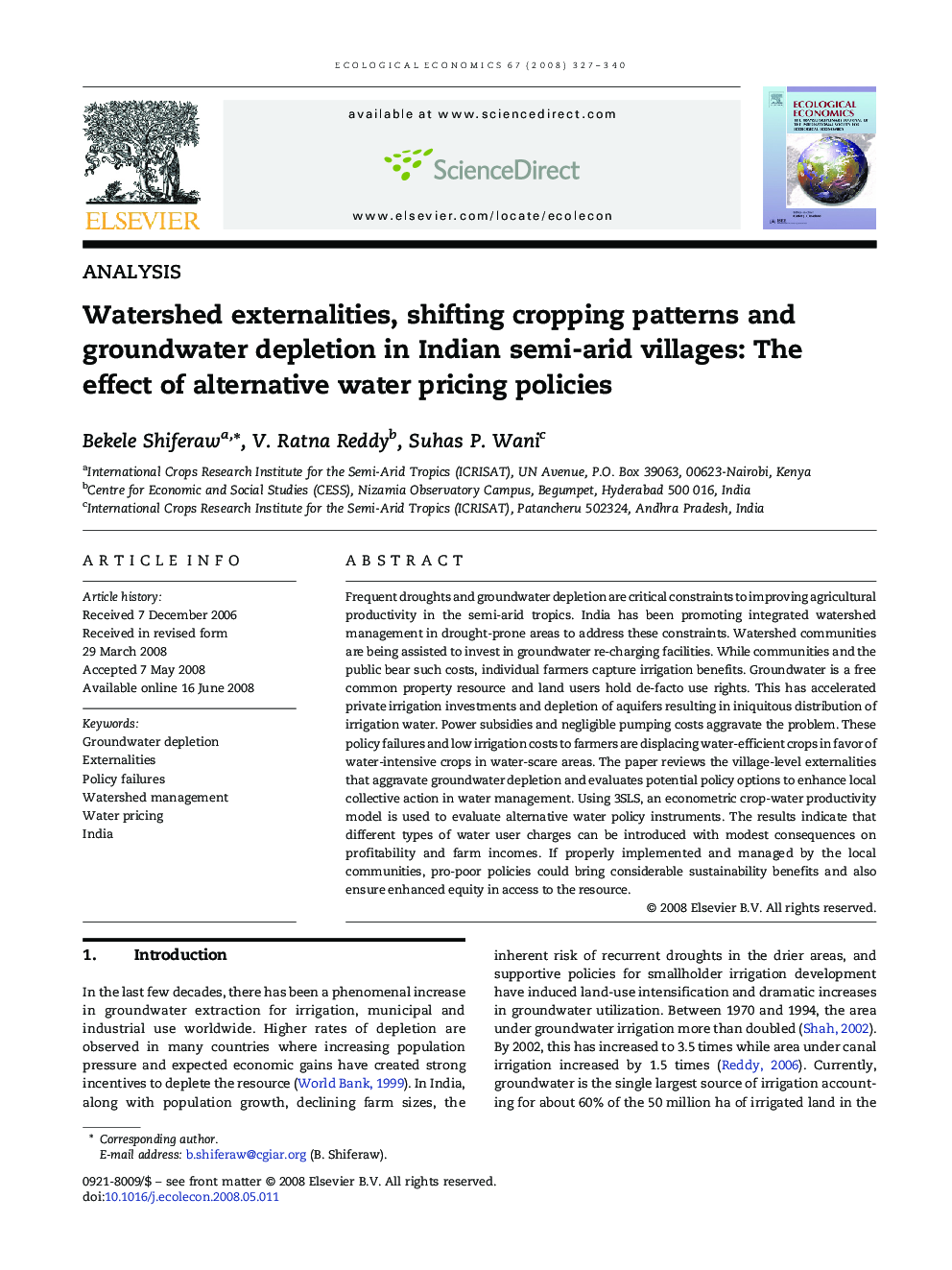| Article ID | Journal | Published Year | Pages | File Type |
|---|---|---|---|---|
| 5051242 | Ecological Economics | 2008 | 14 Pages |
Abstract
Frequent droughts and groundwater depletion are critical constraints to improving agricultural productivity in the semi-arid tropics. India has been promoting integrated watershed management in drought-prone areas to address these constraints. Watershed communities are being assisted to invest in groundwater re-charging facilities. While communities and the public bear such costs, individual farmers capture irrigation benefits. Groundwater is a free common property resource and land users hold de-facto use rights. This has accelerated private irrigation investments and depletion of aquifers resulting in iniquitous distribution of irrigation water. Power subsidies and negligible pumping costs aggravate the problem. These policy failures and low irrigation costs to farmers are displacing water-efficient crops in favor of water-intensive crops in water-scare areas. The paper reviews the village-level externalities that aggravate groundwater depletion and evaluates potential policy options to enhance local collective action in water management. Using 3SLS, an econometric crop-water productivity model is used to evaluate alternative water policy instruments. The results indicate that different types of water user charges can be introduced with modest consequences on profitability and farm incomes. If properly implemented and managed by the local communities, pro-poor policies could bring considerable sustainability benefits and also ensure enhanced equity in access to the resource.
Related Topics
Life Sciences
Agricultural and Biological Sciences
Ecology, Evolution, Behavior and Systematics
Authors
Bekele Shiferaw, V. Ratna Reddy, Suhas P. Wani,
